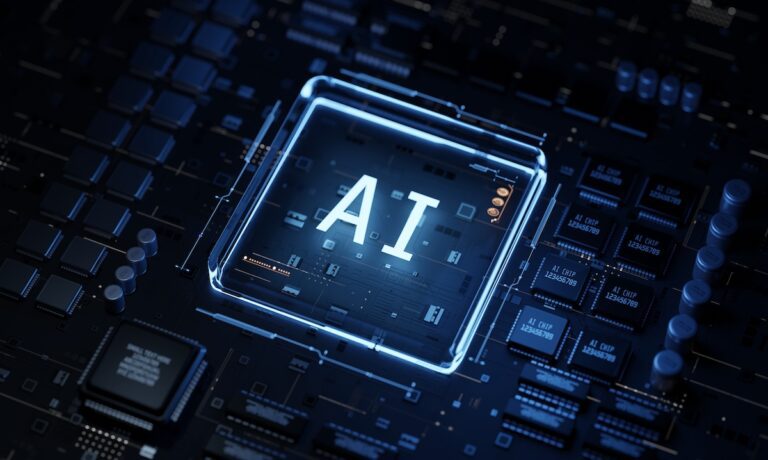Weekly AI Update: Major Developments in Funding, Regulations, and Innovation
This week in the world of artificial intelligence (AI), significant advancements are being made, with states shifting their regulatory focus towards fostering growth rather than mitigating risks. Additionally, financial services companies are adopting a cautious approach as Google reveals its latest powerful model: Gemini 2.5. Here’s a comprehensive overview of the latest happenings in the AI landscape.
OpenAI Secures Landmark $40 Billion Funding
OpenAI is poised to wrap up a remarkable funding round, expected to reach $40 billion, as reported by Bloomberg News. This unprecedented investment is spearheaded by the renowned Japanese investment firm SoftBank, potentially valuing OpenAI at $300 billion—double its valuation from October 2024.
For the fiscal year 2024, OpenAI anticipates generating $3.7 billion in revenue, with projections to grow to $12.7 billion in 2025 and $29.4 billion in 2026. However, the AI startup does not foresee becoming cash flow positive until 2029, primarily due to substantial expenses related to infrastructure, data centers, and talent acquisition. By 2029, OpenAI expects its revenue to exceed $125 billion.
SoftBank is set to lead the initial investment with $7.5 billion, alongside an additional $2.5 billion from a group of investors. A subsequent investment tranche worth $30 billion is scheduled to follow later this year, which will include $22.5 billion from SoftBank and $7.5 billion from a consortium of investors that includes firms like Magnetar Capital and Founders Fund.
SoftBank’s $1 Billion Investment in AI-Powered Robotics
In another notable initiative, SoftBank is planning to invest $1 billion to establish AI-powered robotic factories across the United States. This move comes in response to increasing labor shortages affecting American manufacturers, as highlighted by Nikkei Asia.
The robotic factories will be strategically located in various industrial parks nationwide. This investment is part of a broader $500 billion initiative announced by SoftBank’s CEO, Masayoshi Son, aimed at constructing AI data centers in collaboration with partners such as OpenAI and Oracle, under the project codename “Stargate.”
Financial Services Cautious in AI Adoption
In the finance sector, despite the increasing buzz about generative and agentic AI solutions, companies are reportedly adopting these technologies at a much slower pace compared to technology firms, according to industry discussions at a recent SEC roundtable. Hardeep Walia, Managing Director at Charles Schwab, noted that many financial service providers are hesitant and are taking a measured approach to implementation.
Sarah Hammer, an executive director at the Wharton School, added that although generative AI can enhance certain processes, such as compliance and regulatory tasks, many companies struggle to quantify its return on investment due to the high costs associated with the technology.
Pro-Growth Approach to AI Regulations in States
On the regulatory front, states appear to be moving towards a pro-innovation stance regarding AI, contrasting with the risk-averse regulatory framework favored by the European Union. As detailed by the R Street Institute, more than 900 bills related to AI have been introduced by state legislatures year-to-date, signaling a significant legislative focus.
Notable examples include Virginia and Texas, where legislators have rejected stringent regulations similar to those proposed in the EU AI Act. Recently, Virginia’s Governor Glenn Youngkin vetoed a bill aimed at imposing strict controls on high-risk AI deployment, citing concerns over job creation and technological innovation.
Google Launches Its Most Advanced AI Model: Gemini 2.5
In a bid to enhance its competitive edge in the AI sector, Google has unveiled Gemini 2.5, its latest generative AI model. This new model is touted as the company’s most intelligent and powerful, outpacing leading models from OpenAI, Anthropic, and others, by a considerable margin.
Gemini 2.5 is expected to provide companies with robust capabilities for deploying generative AI, thus enhancing their application development within the Google Cloud ecosystem. Industry experts like Anders Indset have praised Gemini 2.5 as a “masterpiece” of reasoning and computational power, suggesting that Google is positioning itself as a leader in an AI race defined by relentless competition.
Conclusion
This week’s developments in AI, including monumental funding rounds, cautious adoption rates in financial services, and groundbreaking innovations from tech giants, emphasize the critical intersection of innovation, investment, and regulatory environments. As the industry evolves, stakeholders must remain vigilant and adaptable to capitalize on the opportunities that artificial intelligence presents.

